The 10 best Hitchcock movies of all time
The master of suspense
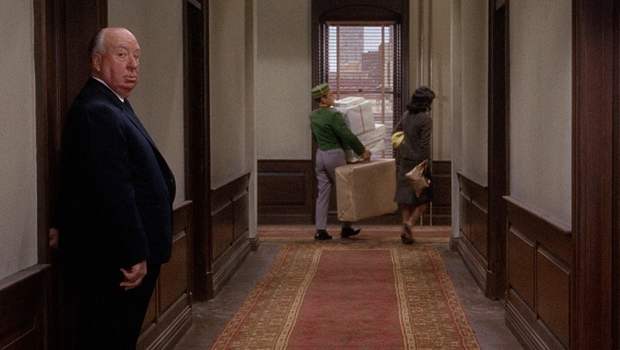
Alfred Hitchcock made 53* films in a truly remarkable career that spanned six decades. Starting out as a title card designer for silent movies, he soon progressed to directing his own features. 1922's Number 13 was a false start it did indeed prove unlucky and was cancelled mid-production but his fortunes would change a few years later with the success of The Lodger. That film paved the way for a career that would have an immeasurable impact on Hollywood. Today it's hard to think of another director with such an enduring legacy.
Picking a top ten, then, is hard. Most of Hitchcock's films have something to recommend about them (maybe not Family Plot...) and there are plenty of movies like Marnie that just missed out on a place here. In the end I settled for a mix of films from across his entire career and a number one that few would disagree is among the greatest movies of all time... It's tricky to find them all in one place, but most are in this collection here.
*53 is the generally accepted number, starting with The Pleasure Garden in 1925 and ending with Family Plot in 1976. He did, however, work on various shorts, unfinished projects like Number 13 and other miscellany that are not counted here.
10. The Birds (1963)
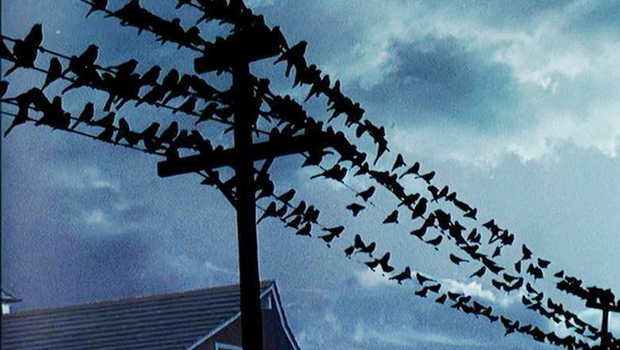
Hitchcock goes all out horror in this memorable adaptation of the Daphne du Maurier short story. Tippi Hedren plays Melanie, a young socialite who starts to fall for handsome lawyer Mitch (Rod Taylor). It all seems to be going well enough until they come under attack by a flock of psychotic birds. Indeed, it's not long before all of our feathered friends have turned into avian avengers and are killing people in the streets.
Tense, frightening and rich with symbolism, The Birds is a fantastic thriller. Its special effects are beautifully realised with some innovative animation courtesy of Walt Disney animator Ub Iwerks but trust us, there's nothing cutesy about these birds.
9. The 39 Steps (1939)
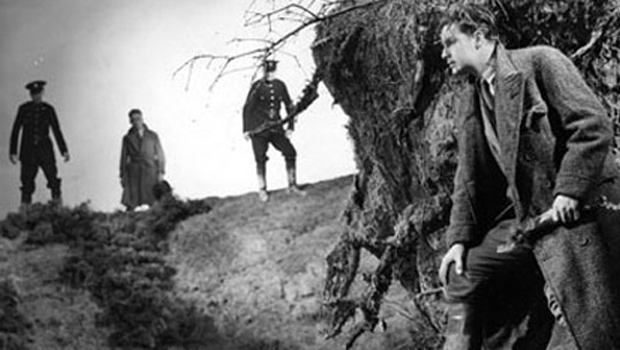
Richard Hannay (Robert Donat) is an innocent man pulled into a world of intrigue and espionage in this early classic. As he is pursued by the police for a crime he didn't commit, he heads to Scotland to try and uncover the mystery of the 39 steps (a phrase he hears early on) and clear his name.
It's quite remarkable to think that some 24 years before North By Northwest Hitchcock was already delivering a textbook example of how to do the spy thriller. The 39 Steps masks the dafter elements of its plot with wit, action and a sheen of credibility. While it may not have the depth of, say, Vertigo, it's one of Hitchcock's most re-watchable films.
Sign up for the Total Film Newsletter
Bringing all the latest movie news, features, and reviews to your inbox
8. Strangers On A Train (1951)
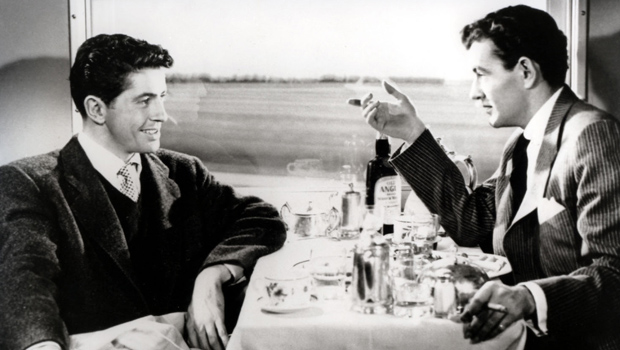
Two men meet on a train in an encounter that will change their lives and end others Based on a Patricia Highsmith novel, this is the story of Guy Haines (Farley Granger) a tennis star who is fed up with his wife Miriam's infidelity. A chance encounter with Bruno Anthony (Robert Walker) leads to a terrible conclusion. Bruno suggests a scheme: he will off Miriam for Guy if Guy kills Bruno's father. The theory is that, as neither of them has any obvious motive for committing the crime, they'll both escape justice. Sensibly, Guy wants nothing to do with this, but Bruno goes ahead and murders Miriam and the blame lands squarely on her husband.
As with North By Northwest, Strangers On A Train is driven by the horrible idea of being accused of a crime you didn't commit. The randomness of Guy and Bruno's encounter is terrifying. And yet the two are not so dissimilar. Hitchcock's direction makes that clear from the start, cutting between the two as they head for their fateful chance encounter.
7. Rear Window (1954)
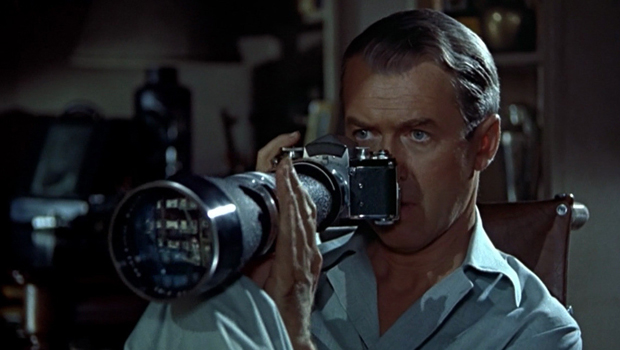
Photographer Jeff (James Stewart) is stuck at home with a broken leg. Bored stiff, he spends his time people watching. So far, so faintly creepy But his voyeuristic hobby comes back to bite him when he overhears an argument and sees his neighbour Lars (Raymond Burr) leaving the house with a knife and saw. With Lars' wife now missing, Jeff starts to think that he may just have witnessed a murder...
As with Rope, Rear Window takes place in a single location and uses this to heighten the sense of claustrophobia. Cooped up inside, Jeff's paranoia runs rampant. The film is also blessed with wonderful set design and its use of sound to convey the outside world is excellent.
6. Shadow Of A Doubt (1943)
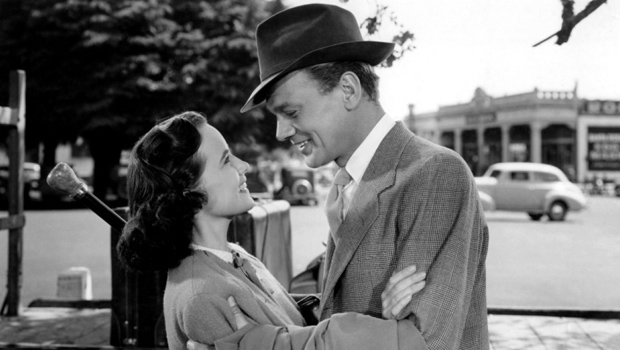
What could be more frightening than a killer in your own family? In Shadow Of A Doubt, Teresa Wright plays Charlotte 'Charlie' Newton a bored young woman living in lovely Santa Rosa, California. Her Uncle Charlie (Joseph Cotton) comes to stay, but her excitement soon turns to concern as she begins to suspect that he's up to something very dodgy indeed. There's a murderer on the loose but it couldn't possibly be him... could it?
There's a grab bag of Hitchcock tropes at work in Shadow Of A Doubt: someone plotting the 'perfect murder', characters who are dark mirrors of each other (note the shared name of the hero and villain) and evil disrupting a peaceful idyll with devastating results. But it's executed so well and with such a precise ratcheting up of the tension that it remains a remarkable piece of work. In 1964 Hitchcock would describe it as the finest of his films. While I don't quite agree with that, it's certainly a masterpiece of suspense.
5. Notorious (1946)
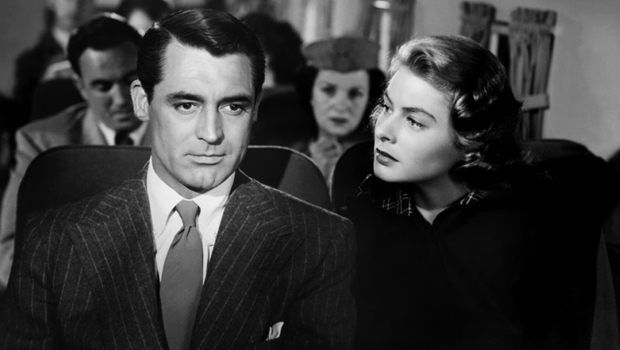
Romantic, dramatic and exciting, this espionage thriller finds Cary Grant's government agent Devlin hunting down Nazis in Brazil. Along the way he accidentally falls for Ingrid Bergman's Alicia (herself the daughter of one of the Nazis) and faces off against Claude Rains as Sebastian and his murderous mother, played by Leopoldine Konstantin.
It's an intriguing set up, rich with layers of moral complexity. It looks like another post-war spy thriller, but deep down it's really a love story. That is expressed in one of the most famous screen kisses of all time. At the time there was a ban on smooches lasting more than three seconds on film. Hitchcock cheekily circumvented that by having Grant and Bergman kiss, nuzzle, kiss again, nuzzle again and so on for more than two minutes.
4. Rope (1948)
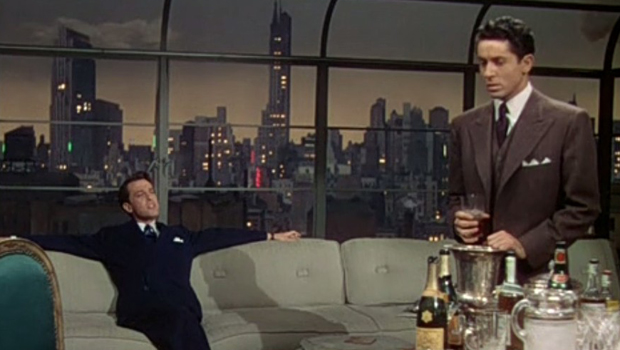
Rope is undoubtedly the hipster's choice of Hitchcock movie. Not as widely-seen or as lauded as Vertigo, but every bit as bleak, it's a brilliantly realised thriller with a heart of ice and a sick sense of humour. Two young men, Brandon (John Dall) and Philip (Farley Granger) have strangled their old classmate David (Dick Hogan) and packaged up the body in an antique trunk. The pair invite some friends including David's family over for dinner and use the trunk as a dining table. They don't bet on housemaster Rupert Cadell (a brilliant James Stewart), however, who begins to piece the horrible truth together.
This twisted setup is made all the more intense for being told in real time and in what appears to be a single continuous shot (it's not the film is actually stitched together from 10 long takes). With a noticeably strong (and then extremely rare in cinema) homosexual subtext, world class performances from the entire cast and a haunting script, it's a jaw-dropping piece of work that still has the power to chill.
3. North By Northwest (1959)
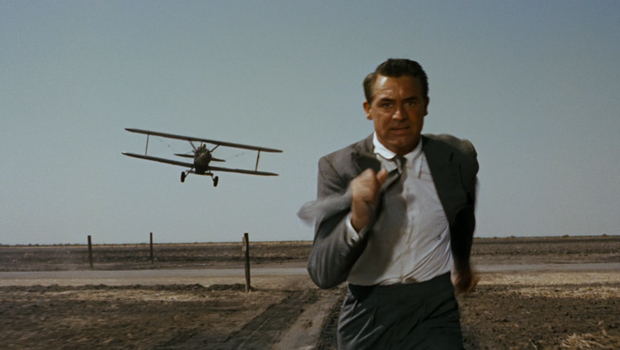
Alfred Hitchcock at his most crowd-pleasing. North By Northwest is a witty, pacey thrill from start to finish. Cary Grant is ad man Roger O. Thornhill, another of Hitchcock's innocent male leads wrongly accused and forced to go on the run, while James Mason's villainous Phillip Vandamm hunts him down.
Hitchcock mines the film's simple premise for tension, while also playing up the humour and sauciness between Grant and Eva Marie Saint's Eve. It's a film full of gorgeous individual moments most notably Thornhill being chased through a field by a machine gun-totting crop duster and that climactic scramble across the faces of Mt Rushmore but it doesn't feel bitty or slight. Cary Grant is charm personified and, in its mixture of high-concept action, innuendo and intrigue, it feels like a Bond movie three years before Dr No.
2. Psycho (1960)
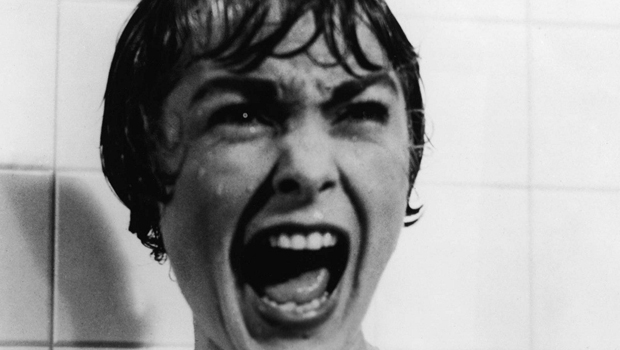
The fact that virtually every moment from Psycho has been homaged, parodied or referenced means that, even if you've never seen the film, the name instantly conjures up a host of potent images.
Made on a tighter budget than North By Northwest (indeed, at one point it was planned for TV) Psycho was lean, mean and horrifying. The pivotal murder scene is a masterpiece of implication the editing leaves you with an impression of extreme violence that's far stronger than what you actually see and it scared audiences silly. Coming just a third of the way through the film, Leigh's death scene subverted natural expectations that the leading lady would make it all the way to the end. But the impact of Psycho is far greater than just a brilliant gotcha! moment. Its combination of sexuality and violence was extremely potent for the '60s. Anthony Perkins portrayal of Norman Bates was a masterclass in menace, and it effectively birthed the slasher movie. Jason Voorhees, Michael Myers and the rest all owe their success, in part, to Norman Bates.
1. Vertigo (1958)
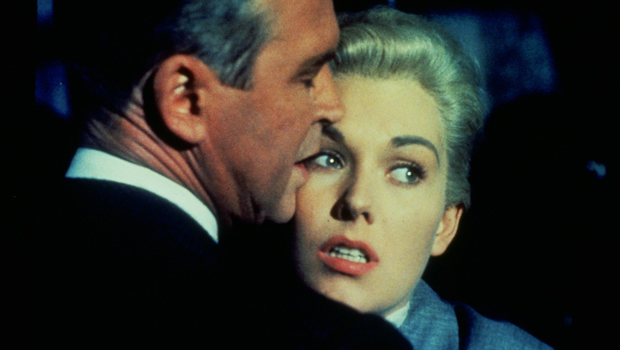
How much of a creative roll was Hitchcock on in the 1950s to mid '60s? From 1951's Strangers On A Train through to 1964's Marnie he barely put a foot wrong. And Vertigo is the best of the bunch, the jewel in Hitchcock's crown.
James Stewart plays Scottie, a detective with a fear of heights who falls for Kim Novak's Madeleine only to witness her death. Some time later he meets another woman, Judy (also played by Novak). But will his fixation lead to history repeating itself? The plot may sound torturous, but that's part of the film's appeal. It's obsessive, maddening and eerie. Stewart may have been twice as old as his 25 year old co-star, but even that works in the film's favour, adding to the sense that Scottie is chasing the past. It's also visually remarkable, with Saul Bass's hypnotic opening titles and a surreal, psychotropic nightmare sequence adding to the delirium. Despite these obvious qualities, it was met with baffled shrugs at the time. Time has been kind to Vertigo, however, and it's many qualities are now obvious to see.

Will Salmon is the Streaming Editor for GamesRadar+. He has been writing about film, TV, comics, and music for more than 15 years, which is quite a long time if you stop and think about it. At Future he launched the scary movie magazine Horrorville, relaunched Comic Heroes, and has written for every issue of SFX magazine for well over a decade. His music writing has appeared in The Quietus, MOJO, Electronic Sound, Clash, and loads of other places too.


